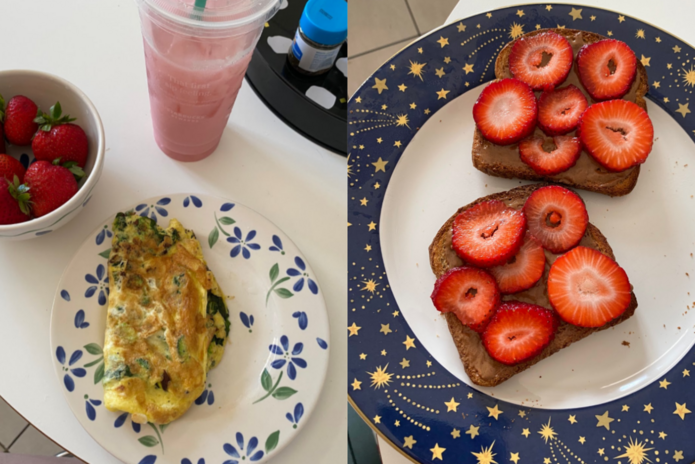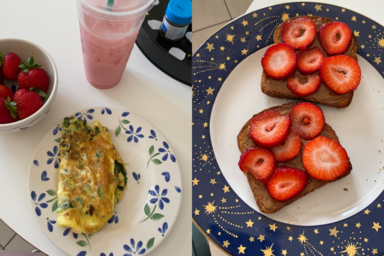As women who grew up in the early Y2K diet culture, it comes as no surprise to me that many of us struggle in maintaining healthy relationships with food. Speaking from my own experience, this culture had a significant impact on me in my formative years. We know that there were different ‘ideal body types’ perpetuated. Like eras or fads, these beauty standards were constantly changing. With age, however, I realized that human bodies are not commodities that evolve with said beauty standards, nor should they be expected to. Debunking the idea that there is a ‘good’ or ‘bad’ body type was the first step in unlearning these toxic notions I had.
A term we have been seeing a lot more recently, as we are shifting away from toxic diet cultures, is intuitive eating. In learning intuitive eating, I realized how often we as human beings (who are striving to look a certain way or fit a certain standard) shut ourselves off from our body’s own signals; as I was doing it myself. Living in a place with an abundance of food is also a factor in this issue. With a tainted relationship with food, we can be so severed from our own hunger or fullness cues, and it is essential to anyone struggling that they are able to reignite this intuition. Food has become a mental arena, and for anyone struggling, can be the most controlling aspect of their life. It is so easy to get caught up in controlling our food intake, that we have now focused our entire day on it. The anxiety that comes with having disordered eating also ruins our ability to hear our own bodily cues. In the same way, we have to ground ourselves in moments of stress or anxiety, it is important to ground ourselves when food control becomes the primary thought in our minds.
I describe my relationship with food as an internal battle that has been generally influenced by external factors. It is very difficult when the problem feels ongoing and entirely within your own head. However, the conversations we have outside of our own minds are crucial to the progress we make as a generation of women who struggle with our own images. This starts with honest conversations. Being honest with ourselves is the first step in honoring our bodies’ cues and appreciating our general health. Being honest with others is the first step in helping each other because even though these issues manifest differently on different people, we are never alone in this problem. To set an open environment where people are capable of sharing their own struggles, we have to establish the premise that health looks different to everybody. If you gave 100 women the same diet and they performed the same exercises, you would still end up with 100 women who looked vastly different from one another. To believe otherwise is a misconceived notion that we were led to believe by toxic diet cultures.
For those seriously struggling and who feel that their health is at risk, professional help is very encouraged; you can only get better. For those who don’t know where to start, there are many Eating Disorder Hotlines to reach out to. If you are not ready for a step this big, find someone close and trustworthy in your own life who will listen to your struggles. Everyone has their own experiences, and I learned from mine that people in my life had the advice to offer me that I never would have expected. As women in this day and age, I do believe that every one of us either has or will struggle in this arena of self-image, but in that, we can also guide one another. Even though sometimes we can feel like our own problems, we are our own solutions. Learn to love and listen to your body.
Tell us what you think by tagging us @HerCampusSJSU!

